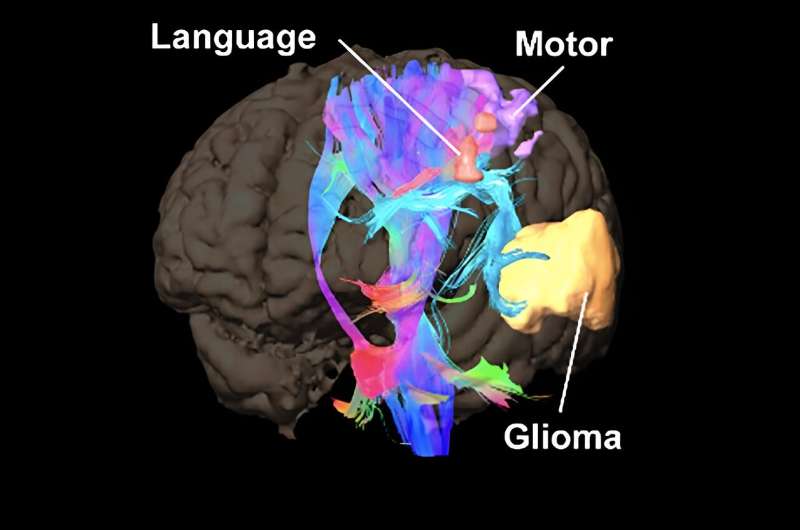This article has been reviewed according to Science X's editorial process and policies. Editors have highlighted the following attributes while ensuring the content's credibility:
fact-checked
peer-reviewed publication
trusted source
proofread
New research platform assesses brain cancer mutations during surgery

Brain cancer is difficult to treat when it starts growing, and a prevalent type, known as a glioma, has a poor five-year survival rate. In a new study published in Proceedings of the National Academy of Sciences, Mayo Clinic researchers report on a new surgical platform used during surgery that informs critical decision-making about tumor treatment within minutes. Time is of the utmost importance when dealing with aggressive malignant tumors.
The platform uses mass spectrometry to identify a key gene mutation in brain cancer, known as isocitrate dehydrogenase (IDH) mutations, in real time. Mass spectrometry is a sensitive technique used to analyze substances in tissue samples, including those altered in cancer.
The study involved more than 240 small tissue biopsies from patients undergoing asleep and awake brain surgery for suspected glioma at Mayo Clinic between 2021 and 2023, and an additional 137 biopsies from an international collaborator. Neurosurgeons collected biopsy samples from the core of the tumor to identify the mutations, as well as from areas around it, to assess if the tumor had spread.
Each tissue sample was placed on a glass slide steps away from the patients during ongoing surgery. The samples were analyzed through the mass spectrometer, which allowed researchers to rapidly assess—within two minutes—whether an IDH mutation was present.
The researchers say that, in addition to enabling real-time diagnosis, the platform allows surgeons to determine a patient's prognosis and perform tumor resection to improve patient outcomes. In the future, the new platform will help surgeons take advantage of the window of opportunity in the operating room to tailor treatment to the molecular features of a tumor, a more personalized approach to medicine.
Researchers hope new therapies developed to target IDH mutations can be delivered in the operating room at the time of surgery.
"The ability to identify this mutation during brain surgery means that we can treat patients locally before they leave the operating room," says the study's senior author, Alfredo Quiñones-Hinojosa, M.D., dean of research and chair of the Department of Neurosurgery at Mayo Clinic in Florida.
"Therefore, we will be able to bring the fight against cancer to the operating room, before chemotherapy and radiation treatments begin, and before the disease has progressed and invaded further." Dr. Quiñones-Hinojosa is also director of the Brain Tumor Stem Cell Research Laboratory.
In the study, researchers were able to diagnose IDH gene mutations with 100% accuracy. They are conducting more research to find other signatures in tumors where the mutation is absent. In addition, they plan to broaden their discoveries to include other types of brain cancers.
More information: Mao, Ying et al, Rapid detection of IDH mutations in gliomas by intraoperative mass spectrometry, Proceedings of the National Academy of Sciences (2024). DOI: 10.1073/pnas.2318843121. www.pnas.org/doi/10.1073/pnas.2318843121





















